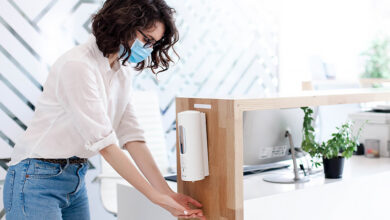Little changes for a greener home
Home is a place you can retreat from the world, relax, and unwind. Sometimes it’s hard to see that the things you do in your home day-to-day can have a big impact on the environment.
And that’s okay! Life is busy. Your home should be a space where you can put a pause on your hectic schedule, breathe and reflect. But even so there are simple everyday switches we can all get on board with that could help create an eco-friendly future.
Want to upgrade your insulation? Check out ideas on how you can insulate your home for winter.
Are you recycling right?
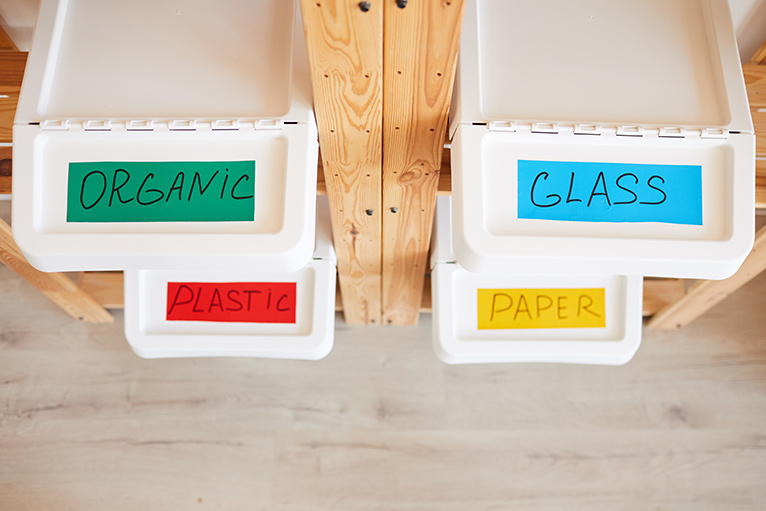
One way you can help the environment from home is by making sure you’re recycling everything that you could be. Gone are the days when recycling meant making a special trip to the recycling centre. Today, recycling is pretty much hassle free. As long as we know how to separate what we’re throwing out by the material it’s made of, and make the effort to do so, most of us can get the job done without leaving home.
In the kitchen, most waste can be recycled. All you need to do is rinse recycle-friendly packaging and pop it in the appropriate bin. But the bathroom is where people often fall short. Most of us associate recycling with food packaging and items that live in our kitchen. However, products like shampoo, shower gel, shaving foams and deodorants can be recycled too.
An easy way to get into the habit of bathroom recycling is by keeping a recycling bag or bin in the room. Simply place a second recycling bin in its own space or hang a bag on the back of the door. You could even repurpose a basket or storage box and make recycling a stylish addition to your bathroom!
Looking for more ways to become energy efficient at home? Check out our tips on how to create a water efficient home.
Limit food waste
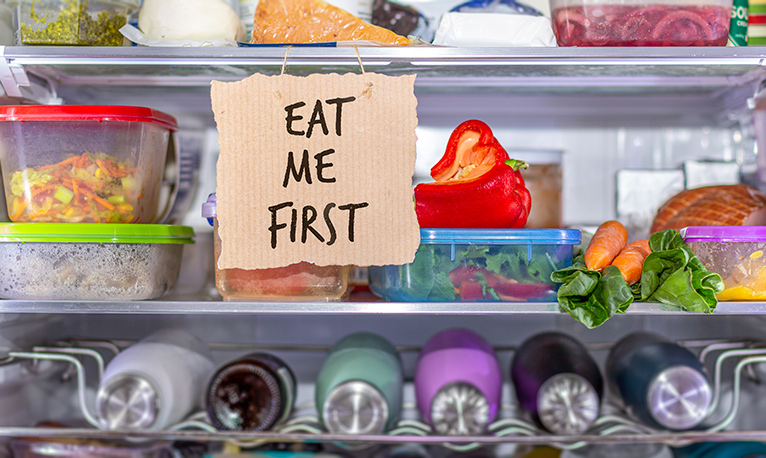
Back in the kitchen, aka the recycling comfort zone, another big way you can become greener is by limiting the amount of food you waste, or by repurposing it.
Planning meals for the week is a great way to stay on top of waste; only buying what you need to make meals and snack on each week will easily help you to curb food wastage.
Time for a kitchen upgrade?
Storing and even freezing food in glass containers
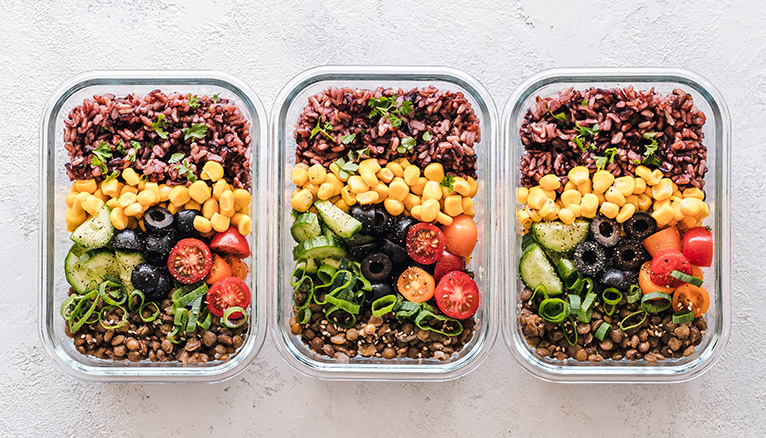
When it comes to storing food, glass is a fantastic alternative to plastic freezer bags, and you can actually safely freeze it as long as you follow the advice below. Glass containers will keep your food fresh for long periods of time and are far better for the environment.
By switching to glass containers, you will also enjoy some extra benefits:
- Unlike plastic bags, glass is free of hormone disrupting chemicals
- Glass containers make food more visible in the freezer and will help you to keep it organised.
- Glass doesn’t smell! It is easy to clean in the dishwasher and won’t discolour over time.
You can buy glass containers in all different shapes and sizes, or to reduce waste even further you can re-use your empty pasta sauce and pickle jars by giving them a quick rinse!
Check out this blog to learn more about the best ways to use glass containers for freezing your food.
Bamboo Straws
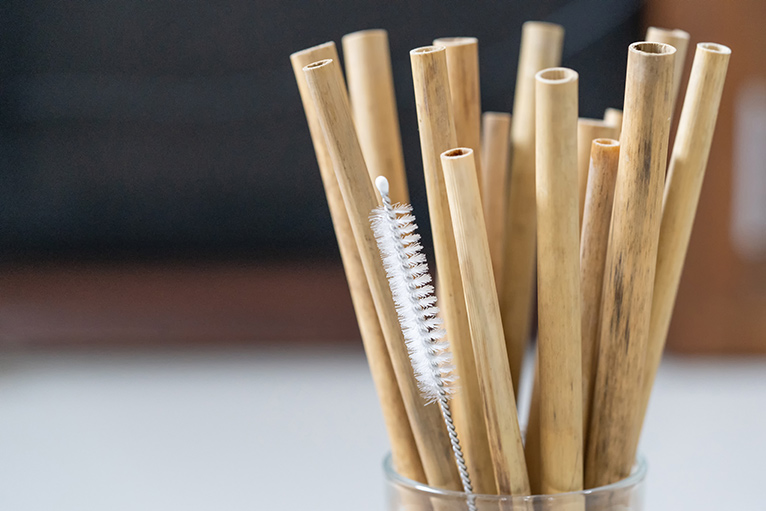
Since plastic straws and packaging have stopped being sold in many food outlets, restaurants and entertainment venues, bamboo has emerged on the scene as a great alternative to plastic.
Bamboo is easy to find online and can be switched with everyday plastic products you use at home, in the bathroom, at mealtimes, and even for hair and beauty.
We all know the downfalls of using paper straws; it starts off fine, but then after only the briefest moment of slurping up your favourite cold drink, things start to take a turn for the worse. The paper that was once intact, fooling you for a short while, quickly becomes a mushy mess.
Bamboo straws are stronger and better at staying intact whilst you drink. You can easily add bamboo to your kitchen by recycling old plastic straws and creating a space for bamboo, to help make your home greener.
Looking for help to go green? Discover how green mortgages work in our advice centre.
Bamboo pet toys
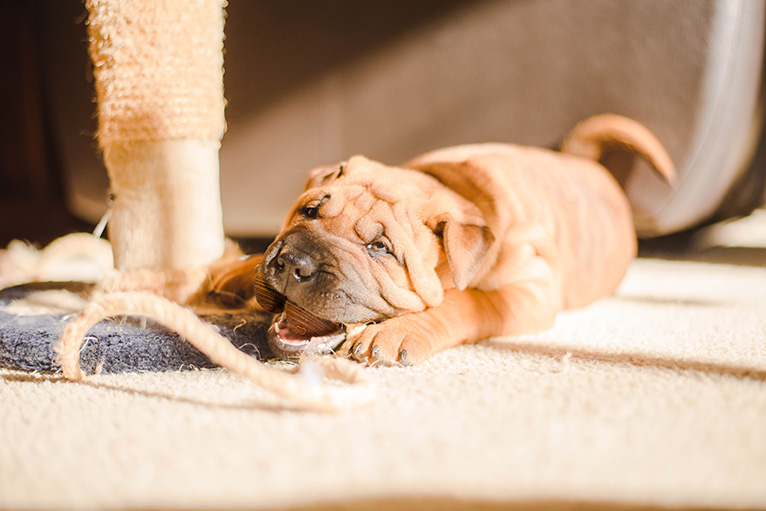
Bamboo pet toys are a great alternative to plastic ones. Not only are they chewable and durable, but bamboo pet toys are also environmentally friendly – which is woof-tastic news!
Bamboo fibres are used to make the toys extra strong and long-lasting, even for the most determined of chewers. They are equally good for controlling tartar build up in pets and will keep them happy for hours on end.
Get into composting
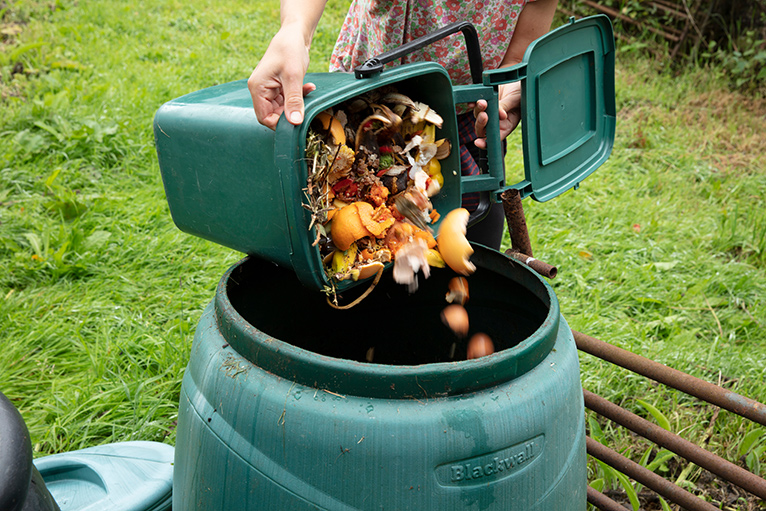
Even in the winter, a garden is a wonderful space to enjoy with friends and family. Composting is a fantastic way to give back to nature and improve the health of your own natural environment.
Composting fosters nutrient-rich soil that will feed your plants, help your soil to retain water, prevent weeds from growing and even reduce greenhouse gas emissions.
To make compost at home all you need to do is add food waste, animal manure, ground coffee and fresh plants to natural brown materials, for example; leaves, shredded tree branches, straw or wood shavings. Mix three parts browns with one-part greens and then add water to the pile until its texture resembles a damp sponge. Leave it to cook until it becomes dry and crumbly then it’s ready to be sprinkled around your garden!
Want to enjoy your garden come rain or shine? Find out how you can keep your garden beautiful all year round.
Compostable dog-poop bags
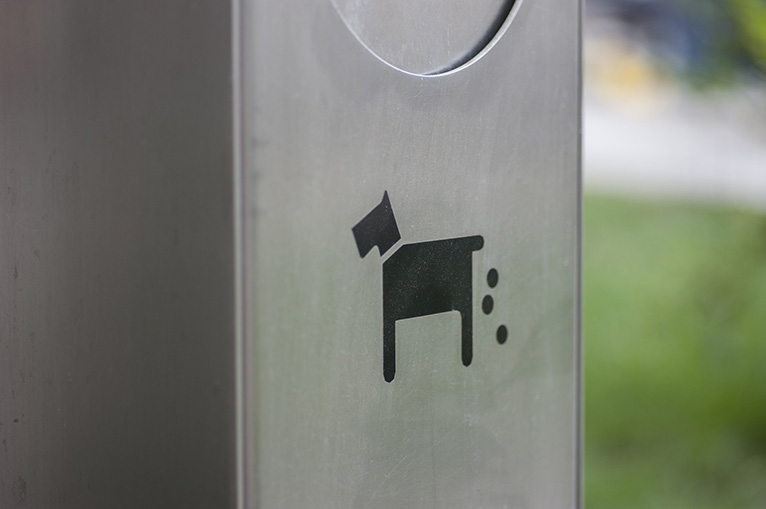
Opting to use compostable poop bags over plastic ones is another easy way you can become greener day-to-day. Compostable poop bags are made from plant-based materials such as corn or vegetable starch, making them completely bio-degradable.
Using compostable poop bags will help you reduce your carbon footprint as well as your yearly plastic consumption, so that’s a double win on the eco-front!
You can put these bags in normal compost bins but try to avoid using them as part of your garden compost when growing edible plants as the animal waste could contain harmful germs and bacteria.

